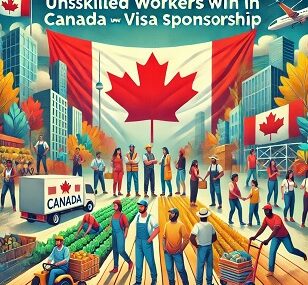Belgium Blue Card Requirements for Skilled Workers 2025/2026
The Belgium Blue Card is one of the most sought-after residence and work permits in Europe, designed to attract highly skilled non-EU workers to the country. For Africans, Asians, and other international applicants, the Belgium Blue Card offers a legal pathway to live and work in Belgium while enjoying benefits comparable to Belgian and EU citizens. Unlike short-term visas, the Blue Card provides long-term security, family reunification opportunities, and access to better career prospects.
This guide provides a exploration of the Belgium Blue Card, including eligibility criteria, requirements, documents, processes, fees, timelines, embassy-specific variations, benefits, challenges, tips, testimonies, salaries, and sample checklists.
Understanding the Belgium Blue Card
The Belgium Blue Card is part of the European Union Blue Card Directive (2009/50/EC), which aims to create a harmonized work permit system across EU member states to attract skilled professionals.
Belgium issues this card to non-EU nationals who meet specific education, salary, and employment contract requirements. With a Blue Card, you can:
-
Live and work legally in Belgium.
-
Switch jobs more easily after a certain period.
-
Bring your family under reunification rules.
-
Eventually transition to permanent residency.
-
Access mobility rights across other EU Blue Card countries after meeting conditions.
Eligibility Criteria for the Belgium Blue Card
Not everyone qualifies for the Blue Card. Below are the core requirements:
Nationality
-
Must be a non-EU/EEA/Swiss citizen.
-
Citizens from Africa, Asia, the Middle East, and Latin America are eligible if they meet requirements.
Education
-
A university degree equivalent to at least a Belgian bachelor’s degree.
-
In many cases, recognition of foreign qualifications is required (through NARIC Belgium).
Employment Offer
-
A valid job contract from a Belgian employer.
-
Contract duration must be at least 1 year.
-
Job should be in a high-skilled sector (IT, engineering, medicine, finance, academia, etc.).
Salary Threshold
-
Applicants must earn a minimum gross annual salary set by the Belgian authorities.
-
As of 2025 (updated annually):
-
€62,000 gross per year for general skilled workers.
-
€51,000 gross per year for shortage occupations (IT specialists, engineers, medical doctors).
-
Belgium Blue Card Requirements for Skilled Workers 2025/2026
Required Documents for Belgium Blue Card
Applicants must prepare a detailed set of documents. Embassy and region-specific differences may apply (Brussels, Flanders, Wallonia have slightly different rules).
Core Documents
-
Completed Blue Card application form.
-
Valid international passport (minimum 12 months validity).
-
Job offer/contract signed by employer (minimum 1 year).
-
Proof of salary (employment contract stating gross annual pay).
-
Educational qualifications (university degree, diploma, transcripts).
-
Recognition of foreign degrees by NARIC Belgium (if applicable).
-
Curriculum Vitae (CV).
-
Health insurance proof.
-
Proof of accommodation in Belgium.
-
Criminal record certificate from home country.
-
Medical certificate proving good health.
-
Passport-sized photos (biometric compliant).
Family Reunification Documents
-
Marriage certificate (for spouse).
-
Birth certificates (for children).
-
Proof of family relationship (legal documents).
Application Process for Belgium Blue Card
Step 1 – Secure a Job in Belgium
-
Find a Belgian employer willing to hire you.
-
Employer must demonstrate they are offering a high-skilled job that meets salary thresholds.
Step 2 – Employer’s Role
-
Employer submits an application to the Regional Employment Authorities (Flanders, Wallonia, or Brussels-Capital Region).
-
They must provide proof that the position qualifies as “highly skilled.”
Step 3 – Blue Card Application
-
Once approved by regional authority, employer or applicant submits Blue Card application at the Belgian embassy/consulate in home country.
Step 4 – Visa D
-
Applicant applies for a Type D Visa (long-stay visa) at the Belgian embassy with the approval documents.
-
Visa D allows entry into Belgium.
Step 5 – Residence Permit
-
Upon arrival in Belgium, applicant registers at the local commune (town hall).
-
Biometric data is taken, and a residence permit (Blue Card) is issued.
Belgium Blue Card Requirements for Skilled Workers 2025/2026
Processing Time and Fees
Processing Time
-
Employer application to regional authority: 2–3 months.
-
Visa D application at embassy: 4–8 weeks.
-
Residence permit issuance: 1–2 months after arrival.
Total timeline: Approximately 4–6 months.
Fees
-
Visa D application fee: €180 (approx).
-
Administrative contribution fee: €363 (2025 figure).
-
Additional costs: Degree recognition, translation, legalisation of documents.
Benefits of Belgium Blue Card
-
Long-term stay – initially valid for 1–4 years, renewable.
-
Family reunification – spouse and children can join.
-
Equal treatment – rights comparable to Belgian nationals (working conditions, education, healthcare).
-
Mobility within EU – can move to another EU Blue Card country after 18 months.
-
Pathway to permanent residence – possible after 5 years in Belgium.
-
Access to high-paying jobs – IT, healthcare, engineering, and finance sectors.
Challenges of Belgium Blue Card
-
High salary thresholds – may be difficult for younger professionals.
-
Degree recognition – lengthy process if African/Asian qualifications are not directly accepted.
-
Employer restrictions – initial contract must be with one employer for 2 years before switching freely.
-
Regional variations – Flanders, Wallonia, and Brussels have different rules and requirements.
-
Limited awareness – many employers still prefer work permits rather than Blue Cards.
Embassy-Specific Differences Across Africa
While requirements are largely standardized, embassy practices differ across African countries:
Nigeria
-
High demand, long appointment waiting times.
-
Strict checks on document authenticity (birth, marriage certificates).
-
Many applicants must legalize documents at the Ministry of Foreign Affairs.
South Africa
-
Quicker processing due to established Belgium-South Africa diplomatic ties.
-
Degree recognition is smoother for South African universities.
Kenya
-
Extra emphasis on medical certificates and police clearance.
-
Delays common due to fewer embassy staff.
Ghana
-
Embassy requires mandatory translations of documents into French, Dutch, or German.
Egypt
-
Applicants often face additional security checks.
-
Processing timelines may be longer.
Ethiopia
-
All foreign documents must be authenticated by Ethiopian Ministry of Foreign Affairs before submission.
Sample Salary Expectations for Blue Card Jobs
-
IT Specialist / Software Engineer – €55,000 – €75,000 per year.
-
Medical Doctor / Healthcare Professional – €60,000 – €90,000 per year.
-
Engineer (Civil, Mechanical, Electrical) – €58,000 – €80,000 per year.
-
Finance / Banking Expert – €65,000 – €100,000 per year.
-
University Lecturer / Researcher – €50,000 – €70,000 per year.
Tips for Successful Application
-
Start early – degree recognition may take months.
-
Target shortage occupations – IT, healthcare, and engineering are easier pathways.
-
Ensure contract meets salary thresholds – confirm gross annual salary is above required level.
-
Prepare for translations – documents must be in Dutch, French, or German.
-
Keep police clearance recent – most embassies require certificates issued within 3–6 months.
-
Consult employer HR – many Belgian companies are familiar with Blue Card processing.
Belgium Blue Card Requirements for Skilled Workers 2025/2026
Testimonies from Applicants
-
John (Nigeria, IT Specialist): “The process took nearly 7 months because of document verification, but once in Belgium, I was able to bring my wife and kids within 6 months.”
-
Amina (Kenya, Medical Doctor): “The salary threshold was high, but my hospital contract met it. Recognition of my medical degree took the longest time.”
-
Kwame (Ghana, Engineer): “The translation requirements delayed me, but once I got the Blue Card, mobility across the EU became a reality.”
Sample Checklist for Applicants
-
Valid Passport (12+ months)
-
Signed Employment Contract (1 year minimum)
-
Proof of Salary Above Threshold
-
University Degree + Recognition Certificate
-
Curriculum Vitae (CV)
-
Health Insurance Proof
-
Accommodation Proof in Belgium
-
Police Clearance Certificate
-
Medical Certificate
-
Passport-Sized Photos
-
Marriage / Birth Certificates (for family applications)
Conclusion
The Belgium Blue Card represents one of the most secure and prestigious pathways for skilled workers from Africa and beyond to live and work in Europe. While the process involves strict eligibility, high salary thresholds, and extensive documentation, the rewards are significant: long-term residency, access to high-paying jobs, family reunification, and eventual EU mobility.
For professionals in IT, engineering, healthcare, and finance, Belgium is not only a gateway to Europe but also a country that values global talent. With careful planning, proper document preparation, and patience, the Belgium Blue Card can open the doors to a successful and rewarding life in Europe.






